At the 8th National Farmers' Forum on the morning of October 12, Deputy Prime Minister Le Minh Khai assessed that the collective economy is an important economic component that must be consolidated and developed, together with the state economy, to become a solid foundation of the national economy. Developing the collective economy is an inevitable, objective trend, and a task of the entire political system.
According to the Deputy Prime Minister , many cooperatives and cooperative groups, after being established with support from Farmers' Associations, have been profitable, creating more jobs and producing quality, safe agricultural products, and building OCOP product brands.
In addition, agricultural cooperative models that organize production and business linked to value chains are increasing. Many cooperatives have registered to produce according to food safety standards and VietGAP standards.
However, cooperatives still face many difficulties and challenges in terms of capital, land, agricultural product consumption, management capacity, mechanisms and policies to operate and operate in the agricultural sector.
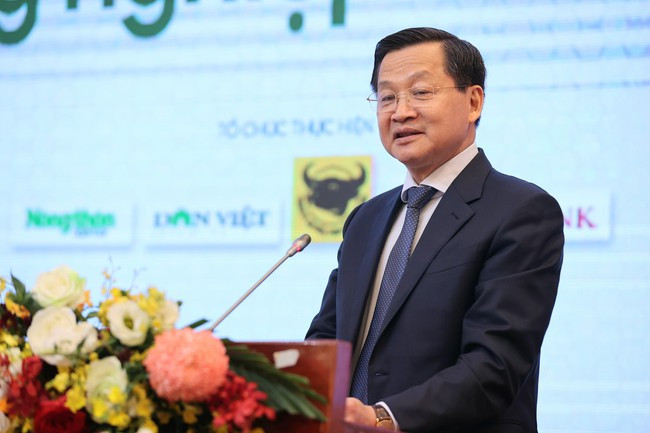
In that spirit, the Deputy Prime Minister requested leaders of ministries, branches, localities, and the Vietnam Farmers' Union to urgently focus on implementing a number of key solutions and tasks.
Firstly, it is necessary to have a correct and complete understanding of the nature, position, role and importance of the collective economy in the market economy. To implement this requirement, Deputy Prime Minister Le Minh Khai requested the Ministry of Planning and Investment to preside over and coordinate with relevant agencies to urgently complete the National Steering Committee on the collective economy according to the direction of the Party Central Committee in Resolution No. 20-NQ/TW.
Second, it is recommended that Farmers' Associations at all levels continue to propagate, mobilize, and guide the establishment of more cooperatives and cooperative groups on the basis of branches and professional associations. By 2030, the country will have 140,000 cooperative groups and 45,000 cooperatives with 2 million members.
Third, it is recommended that the Government Office coordinate with the Central Committee of the Vietnam Farmers' Union to preside over, the Ministry of Agriculture and Rural Development and relevant ministries and agencies to urgently submit to the Prime Minister for approval the Project "Vietnam Farmers' Union participates in developing collective economy in agriculture".
Accordingly, the project contents must ensure feasibility and mobilize social resources. At the same time, promote and further enhance the role of Farmers' Associations at all levels in participating in collective economic development, encourage new approaches, and form sustainable linkage chains.
Fourth, ministries, branches and localities need to focus on researching and removing difficulties and obstacles that representatives of cooperatives raised at the forum; not shirking responsibility for issues related to mechanisms and policies on cooperatives.
Fifth, it is necessary to improve the effectiveness and efficiency of state management in the collective economic sector. Prioritize resources, allocate funding, and staff to monitor the contents of collective economic and cooperative innovation in agencies and units from central to local levels.
Sixth, it is necessary to strengthen international cooperation to attract resources to support the development of collective economy and cooperatives in agriculture and expand markets, introduce and consume products of cooperatives; train and improve the qualifications of human resources of collective economic organizations established by the Farmers' Association through propaganda, mobilization and guidance.
Develop mechanisms and policies to train, foster and attract young intellectuals to work in cooperatives, meeting the increasing demands in building value chains and international integration.
Seventh, cooperatives must be proactive, creative, and innovative in their thinking and working methods, shifting from agricultural production thinking to agricultural economics, integrating multi-values; the products made must have a brand, high quality, meeting the domestic and world markets, especially associated with the One Commune One Product (OCOP) Program brand.
The Deputy Prime Minister also noted that the Vietnam Farmers' Union needs to maintain the organization of forums, creating a useful playground for farmers to share and propose experiences in production and business practices; at the same time, make proposals and recommendations so that the Government, the Prime Minister, ministries, branches and localities can promptly have solutions and policies to remove difficulties.

Source


![[Photo] General Secretary To Lam, Secretary of the Central Military Commission attends the 12th Party Congress of the Army](https://vphoto.vietnam.vn/thumb/1200x675/vietnam/resource/IMAGE/2025/9/30/9b63aaa37ddb472ead84e3870a8ae825)
![[Photo] Panorama of the cable-stayed bridge, the final bottleneck of the Ben Luc-Long Thanh expressway](https://vphoto.vietnam.vn/thumb/1200x675/vietnam/resource/IMAGE/2025/9/30/391fdf21025541d6b2f092e49a17243f)
![[Photo] Solemn opening of the 12th Military Party Congress for the 2025-2030 term](https://vphoto.vietnam.vn/thumb/1200x675/vietnam/resource/IMAGE/2025/9/30/2cd383b3130d41a1a4b5ace0d5eb989d)
![[Photo] President Luong Cuong receives President of the Cuban National Assembly Esteban Lazo Hernandez](https://vphoto.vietnam.vn/thumb/1200x675/vietnam/resource/IMAGE/2025/9/30/4d38932911c24f6ea1936252bd5427fa)

![[Photo] The 1st Congress of Phu Tho Provincial Party Committee, term 2025-2030](https://vphoto.vietnam.vn/thumb/1200x675/vietnam/resource/IMAGE/2025/9/30/1507da06216649bba8a1ce6251816820)
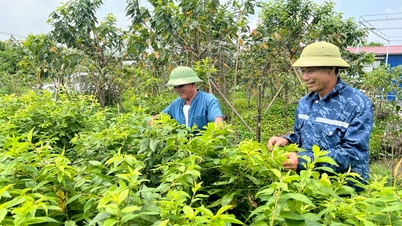



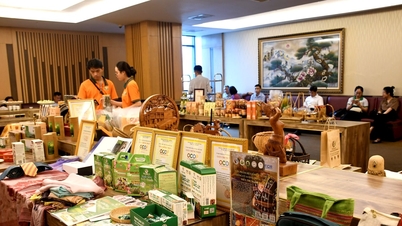














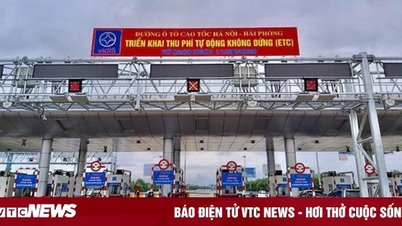


























































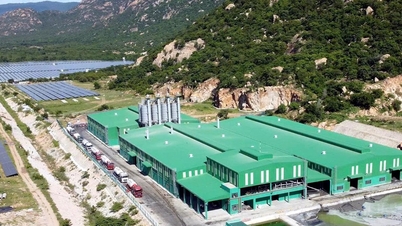

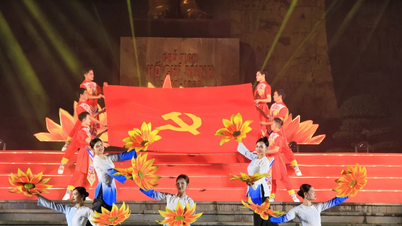
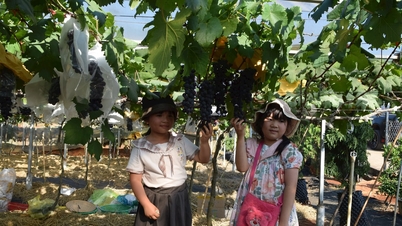
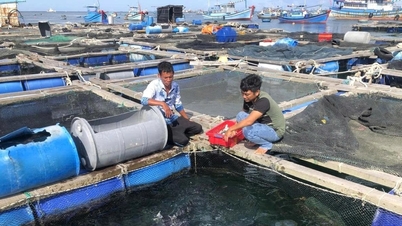
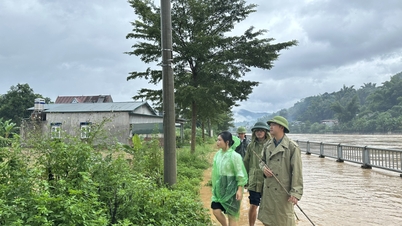

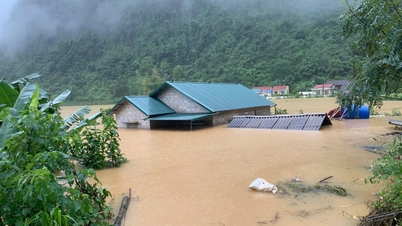












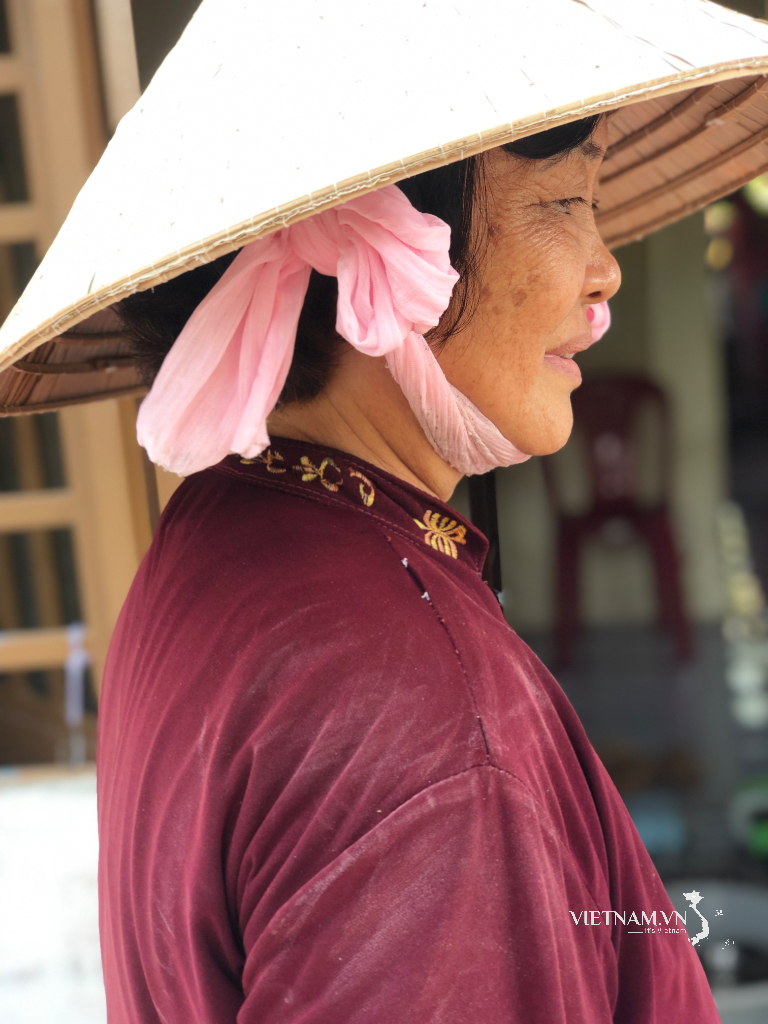

Comment (0)